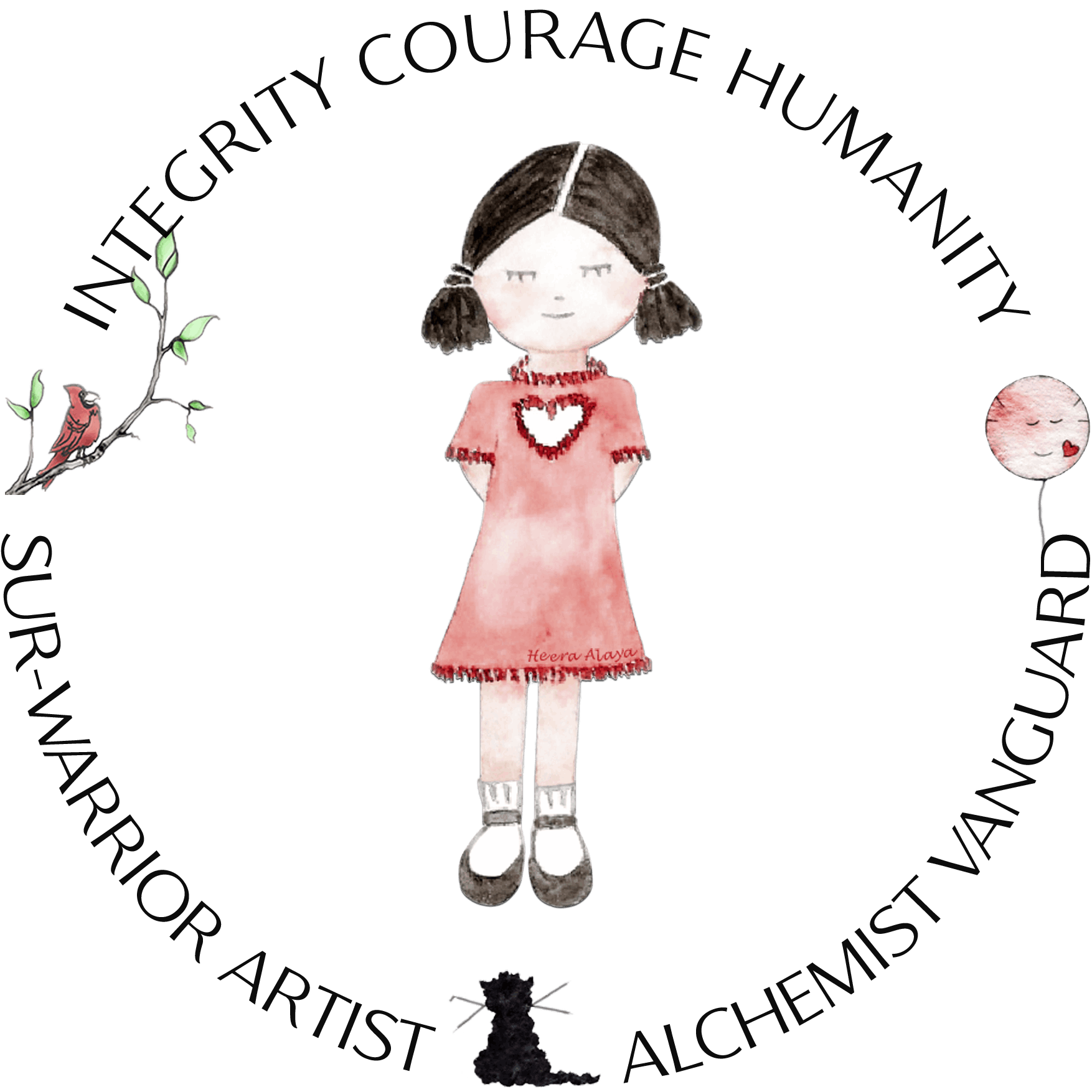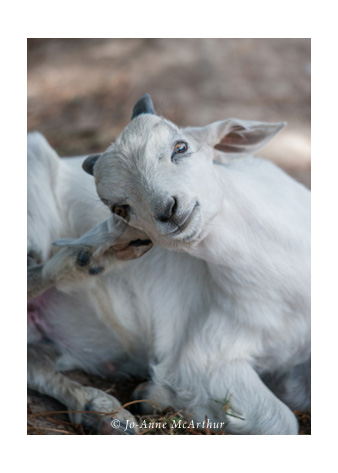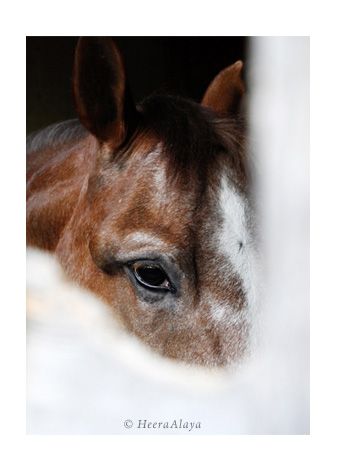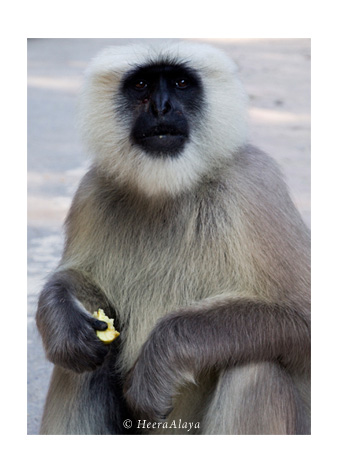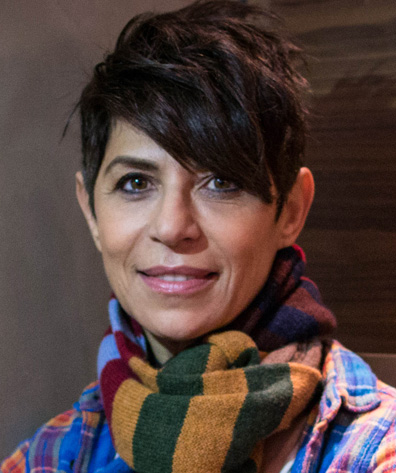
“My parents gave us a beautiful gift in life:
they taught us to be in touch with our feelings
—to feel and understand others.”
CHEF DOMINIQUE CRENN
Chef-Owner, Atelier Crenn, USA
January 1st, 2018
OPEN WINDOWS | In Conversation
The World’s Best Female Chef and her poetic culinaria stand out like refined Ikebana, striking a delicate balance between flavours and aesthetics. Chef Dominique Crenn of [updated] three-Michelin-starred restaurant Atelier Crenn has established her artistry with her undeniable talent and profound attention to detail. Chef Crenn’s expertise transports us into an indescribable world, and her distinct voice opens our minds to approach life with greater awareness.
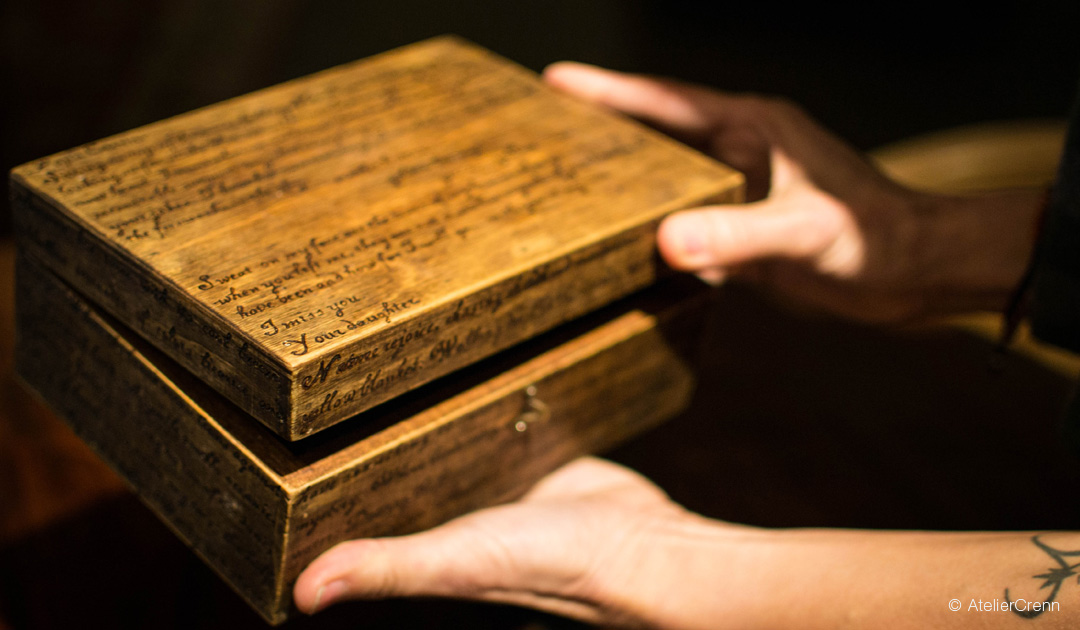
Heera Alaya: You speak the language of emotions, a terrain familiar to me. Expressing emotions is viewed as a weakness; how do you infuse power into feelings?
Chef Dominique Crenn: Many people think showing emotions is a weakness; for me, it’s a strength. As humans, we are all energy; what lies inside us is feelings and energy; you cannot touch it, but it’s there. People fear being vulnerable, which I find quite disturbing because we need to get in touch with how we feel about things; otherwise, we will lose a sense of humanity.
How do you nurture your sensitivity while exercising its strength?
Sensitivity is to understand who you are and how it grounds you. Sensitivity gives you humility. Moreover, when you start knowing what you are feeling inside and who you are, you can be a stronger person in the world, giving you more strength.
People who show toughness outside are the weaker people. The work inside of them hasn’t been done; they are using toughness as a shield; it’s not impressive.
What shapes your sensitivity?
My sensitivity is a combination of many things. My parents gave us [Chef Crenn and her brother] a beautiful gift in life, and they taught us to be in touch with our feelings—to feel and understand others. And I think my sensitivity comes from here. Being sensitive doesn’t mean you are weak; sensitive implies you are in tune with yourself and others, which is very important.
As I walked with my dad, looking at trees and feeling the wind go through the leaves, my dad would tell me: “Trees and flowers are alive, and they have feelings; you have to pay attention to your surroundings, and you have to feel.” So I would sit for hours in front of trees or flowers, and I wanted to feel them and watch how they were moving around and alive.
Also, at a young age, the setting was art. It is important to get exposed to art and music early in life.
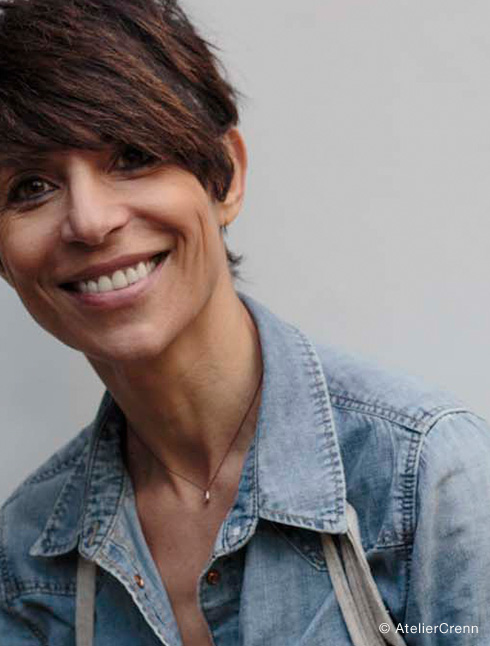
My parents gave us [Chef Crenn and her brother]
a beautiful gift in life,
and they taught us to be in touch with our feelings—
to feel and understand others.
You give your father’s painting’s prominence at Atelier Crenn. What elements, emotions or/and expressions did your father capture in his paintings that make them special?
My father was born (and grew up) in Brittany, an extraordinary place in the world. The combination of the earth, the sea, and the sky (in Brittany) is quite magical. I haven’t felt the same energy anywhere except in Ireland. My father was very much a lover of the moment in time and nature; he was also in tune with what lies inside us and this planet—we live on the surface, but what is under it? Most of his paintings are about water, fruits, and flowers, immortalising something that should be alive.
How has your father’s philosophy of life influenced you? And how does your view on life translate into mindful living?
My parents adopted my brother and me. Their philosophy was to make sure that we understood that the world has a lot of layers, and part of it is diversity, colours, and feelings. As humans, we are unique, but we also need to welcome the diversity of people and be curious about things. My parents’ philosophy also taught us never to think we are better than others, never judge anyone because we don’t want to be judged, and to respect our surroundings.
My parents were Catholic (My Mom is still Catholic.) and very religious. That’s something I respect; I am not sure I am that religious. I believe more in energy and something else. A big part of my parent’s philosophy was about equality, freedom, and peace; they gave me a sense of respect and humility and cared about others, which was very important, and I am trying to practice these teachings.
In your book, Atelier Crenn: Metamorphosis of Taste, your recollections—“when I was a little girl, as a child, as a kid”— speak to memories becoming your heartbeats. Would that be accurate?
Absolutely. Memories are my heartbeats. Memories are what form you. For me, the past and my memories make me today; every moment ushers in a beautiful light. That’s why I find so much joy in everything I remember. And I bring that joy—that taste I had years ago—through food to celebrate memories.
Does the sharing of deep feelings solidify memories?
Oh yeah, for sure. But remember, you create new memories that become part of the DNA. It’s [forming memories] a continuation; it’s endless. The initial memory gives you the core of your soul, your idea of thinking, and your way of going through life.
You grew up in Versailles [France] and studied in Paris, yet memories of your childhood in Brittany seem distinctive and vivid. Is it, like you mentioned earlier, because Brittany is magical, or is there something more?
Brittany is also vivid and special because everything I have done with my parents had a purpose, so I cherished every moment deeply. These experiences [in Brittany] are so impactful that I don’t forget them.
What prompted you to create Atelier Crenn?
I despise the corporation and the commercial aspect in my industry, the disconnection. People wanted me to be a certain way, and I didn’t need that. Moreover, we live in a world of instant gratification; I didn’t want to be a part of it. I wanted to create a special business for my team and me.
I have more respect for people doing their own thing with a story behind it than those who follow others because it’s trendy.
What makes your leadership style effective?
Leadership is not being a boss. A leader will put themselves in others’ place and who is there to inspire and be inspired by the things around them. At Atelier Crenn, we all work together as a team. We push each other to improve every day and try to be excellent; we respect and talk to each other. It’s easy to be a boss; it’s not easy to be a leader. There are a lot of bosses out there, and they are not very successful. The bosses care about the money; they don’t care about the people. For me, the most important thing is not the money; it’s the people; it’s humanity.
Cleanliness is about purity;
it’s about being respectful of your surroundings.
You must ensure that
the space you are in brings clarity to your mind.
Where there is no cleanliness,
there is no clarity.
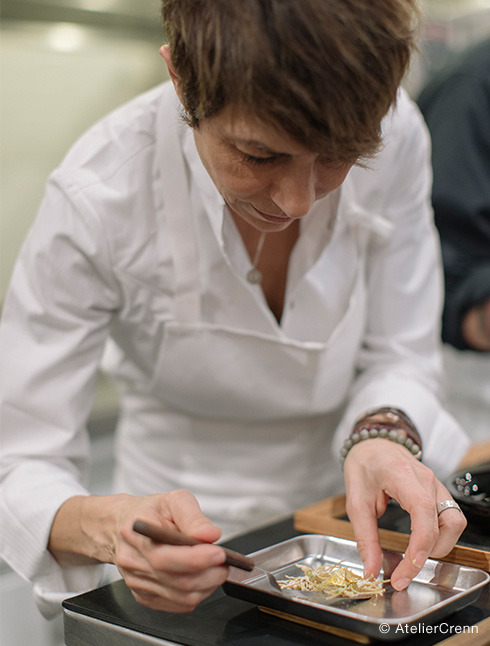
Does your nature naturally lend itself to creating artistically and with consciousness?
When raised with a philosophy of consciousness and caring, it becomes the core of one’s thinking. Creativity is the next layer of your consciousness. You use what you know and who you are; it develops organically.
You draw from memories. What role does imagination play in creating your poetic culinaria?
Oh, imagination is a big thing in creativity. So, when we look at life, is it an illusion or a dream? Or is it a reality when you are in a dream? So you imagine a lot of things, you know. It’s about taking yourself to a different place. Imagination is important for your mind. And if you lose that, you lose a lot of things.
How do you keep your creative process fresh?
[Keeping creative process fresh] Through people, museums, art, music, literature, theatre, nature, the planet, and also by listening to the craziness of this world. I don’t like how people who call themselves leaders are leading countries today—for the majority of them all over the world, it’s all about greed.
I want to do something inspiring and uplifting. I want to lead the way I want life to be. And if I can inspire others to change their ways, that would be great. I am not imposing anything.
Why do you create with seasonal ingredients?
If you want to be greedy, you use tomatoes 365 days a year because it’s what you are supposed to do to make money, and that’s what people want.
It’s important to work with what nature gives you at a particular place and time—you must go through seasonality, what the earth is giving you, and what the farmer is giving you—otherwise, you are violating the soul. Eating meat every day or consuming industrial farming is not natural.
How do our consumption choices contribute to wastage and hunger?
Everybody needs to have a conscience; conscientiousness is very important.
From the beginning of time, food has helped you feed your soul every day. It’s like drinking water or walking; food is a part of your day. What you do is overconsumption–you have to have a big plate and have a lot of food. So there is a lot of waste. For example, in Brazil, 50% of food is wasted. And Brazil has a lot of hunger.
In San Francisco, many people in the homeless community are starving. And we are supposed to be one of the more affluent cities in America. So it’s all about values. We have to rethink things. I don’t have the answer, but I know what we are doing right now is not right.
What is the complexity of everyday life that drives you?
I have three businesses right now, and I have more to come. And I want to take care of the group working with me—to ensure they can feed their families. For that, you have to make money. But to make money, you have to be profitable. I do not want to make money by being comfortable and not following what I believe, so it took me more years to be where I am today.
I am trying to do the right thing, and hopefully, the money will come, but the main thing is to ensure that I break even so that the people working with me are okay.
An essential part of the culture at Atelier Crenn is for your team and you to have a meal together; is it to foster camaraderie?
Yes. It’s important for us to spend money on the team. I don’t want to live in a five-million-dollar house, and I don’t need to drive a Ferrari. Some people care about all that; I do not.
Why do you emphasise cleanliness at Atelier Crenn?
Cleanliness is about purity; it’s about being respectful of your surroundings. You must ensure that the space you are in brings clarity to your mind. Where there is no cleanliness, there is no clarity.
How do your lifestyle choices complement your sensibilities and evolution?
Well, if I don’t drive a big car and pollute the streets of San Francisco, then it becomes part of the air, you know, and part of the climate. If I don’t go to MacDonald’s and buy 10,000 hamburgers, I don’t contribute to industrial farming. I buy organic food; I don’t buy food with pesticides. It’s little contributions that make changes. You have to make conscious choices.
I don’t feed my kids macaroni and cheese out of the box; I make food for them and tell them where their food comes from. I don’t want to buy a piece of chicken that is packaged in cardboard and plastic. This chicken is not even chicken; it has been produced by ten thousand chickens living in a box. I would instead go to a farmer who has ten chickens. At least I can celebrate the life of that chicken. I am very thoughtful; I am very conscious.
What’s the difference between perfection and evolution?
Evolution is the core of growth. Whereas, when you do something regularly, you perfect it; that’s what you will have for the rest of your life. There is no movement in perfection; there is movement in evolution. The world evolves every day, and you have to change. You must be a part of that movement, retaining a core of excellence and striving to improve every day.
Were there any small things you learned the hard way?
I didn’t learn anything the hard way. I have had struggles, but I never get beat down. I am serving the world and the people around me and learning to be a better person. I have been lucky in life to have good people around me.
How has on-the-job-training helped you to develop your craft while retaining your essence?
School gives you some good structure, but for my craft, I got that structure from my parents—they taught me how to do things. After that, you learn on the field. If you haven’t gone to school, it’s more flexible, and maybe it’s better to try being more creative when you don’t have any set expectations.
How can fathers create memories with their children?
You can tell children a story about your world, but be curious about who they are and how they feel. Parents are not curious about their children nowadays; they don’t ask: “How was your day today? Did something happen? Tell me about it.” You need to go back to making connections. This investment in children will be impactful when they grow up 20 years from now; children will remember those moments. I remember my dad asking me questions, and my mom, in front of the ocean, would ask me: “What do you see? What is the colour that you see?” My parents were curious about what I saw; that is very important.
It’s also essential to stimulate children’s curiosity. Ask children how they feel and make them ask questions. Ask children questions when you are with them in the fields or next to the water. Don’t impose anything on children.
What is the nature of dialogue you want your poetic culinaria to evoke?
The dialogue of an open mind—about others, diversity, and what we do at Atelier Crenn.
How do you invest in and nourish your soul within the framework of your everyday life—that demands perfection and long working hours?
[Laughs] Meditation. Quality. Balance.
Do your pursuits as a chef and quests as an individual differ, or do they seamlessly merge?
Oh, everything is merging. We talk the talk, and we walk the walk.
You say: “Atelier Crenn was a part of my dream, but when you realise a dream, it’s not a dream anymore. Other dreams come to you.” I wish you to continue dreaming and for all your dreams to grow into reality. Merci beaucoup.
Thank you very much for your time.
Learn more about Chef Dominique Crenn.
